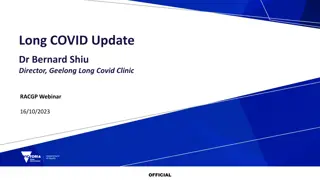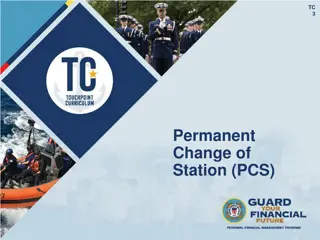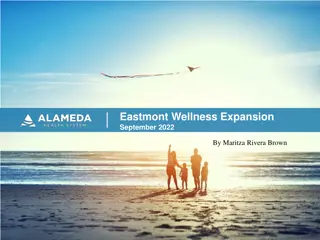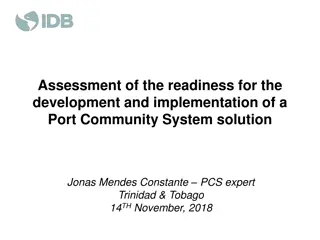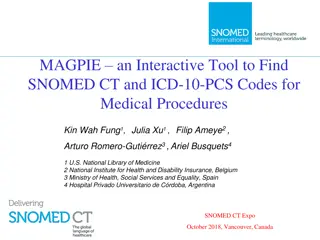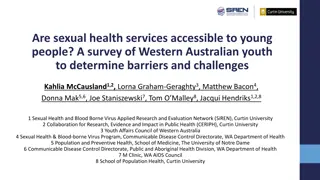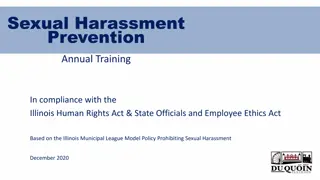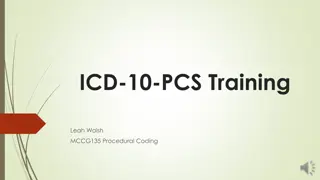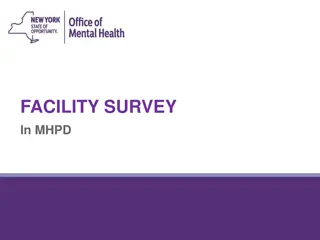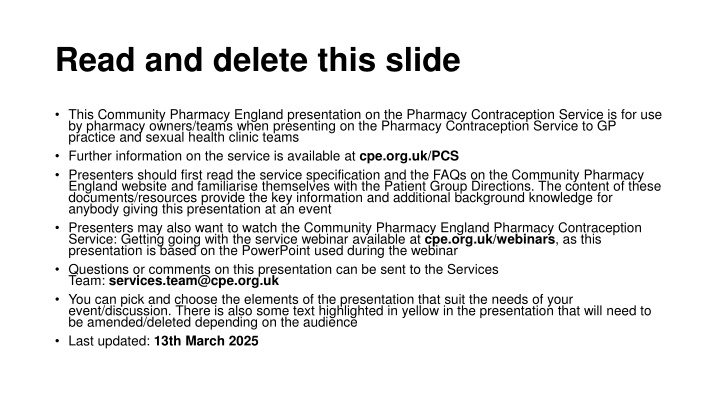
Comprehensive Overview of Pharmacy Contraception Service Presentation
This presentation provides detailed insights into the Pharmacy Contraception Service in England, offering valuable information for pharmacy teams presenting to GP practices and sexual health clinic teams. Covering strategic context, service requirements, learning opportunities, and more, it serves as a resourceful guide for those interested in the topic.
Download Presentation

Please find below an Image/Link to download the presentation.
The content on the website is provided AS IS for your information and personal use only. It may not be sold, licensed, or shared on other websites without obtaining consent from the author. If you encounter any issues during the download, it is possible that the publisher has removed the file from their server.
You are allowed to download the files provided on this website for personal or commercial use, subject to the condition that they are used lawfully. All files are the property of their respective owners.
The content on the website is provided AS IS for your information and personal use only. It may not be sold, licensed, or shared on other websites without obtaining consent from the author.
E N D
Presentation Transcript
Read and delete this slide This Community Pharmacy England presentation on the Pharmacy Contraception Service is for use by pharmacy owners/teams when presenting on the Pharmacy Contraception Service to GP practice and sexual health clinic teams Further information on the service is available at cpe.org.uk/PCS Presenters should first read the service specification and the FAQs on the Community Pharmacy England website and familiarise themselves with the Patient Group Directions. The content of these documents/resources provide the key information and additional background knowledge for anybody giving this presentation at an event Presenters may also want to watch the Community Pharmacy England Pharmacy Contraception Service: Getting going with the service webinar available at cpe.org.uk/webinars, as this presentation is based on the PowerPoint used during the webinar Questions or comments on this presentation can be sent to the Services Team: services.team@cpe.org.uk You can pick and choose the elements of the presentation that suit the needs of your event/discussion. There is also some text highlighted in yellow in the presentation that will need to be amended/deleted depending on the audience Last updated: 13th March 2025
The Pharmacy Contraception Service [Name of presenter]
Presentation overview Strategic context for the service What does this mean for general practices and sexual health clinics Overview of the service Summary of the service requirements The PGDs , the consultation & outcomes Notifications to general practice Learning and development for pharmacists Q&A
Strategic context for the service Aim of the service is to: Offer greater choice from where people can access contraception services Create additional capacity in primary care and sexual health clinics to support meeting the demand for more complex assessments Support addressing health inequalities by providing wider healthcare access Signposting service users to local sexual health services Delivery Plan for recovering access in primary care (May 2023) highlighted expansion of the service to increase access to and convenience of contraception services in line with the Government s Women s Health Strategy for England (August 2022)
The Pharmacy Contraception Service Advanced service (therefore optional) Over 81% (consider stat for local coverage) of pharmacies nationally have signed up to provide the service (January 2025) The service consists of: 1 Initiation On-going supply 2 3 Review Supply via patient group direction (PGD) Blood pressure and Body Mass Index measured (where clinically applicable) Provided by pharmacists
What does this mean for practice / clinic appointments? Aim is to work together to reduce workload at the practice / clinic General practices and sexual health clinics can: Still provide consultations for contraception and review on-going contraception needs may want to focus on more complex cases Opt to signpost or electronically refer individuals (recommended) to the pharmacy service for a consultation with a pharmacist Referrals where made, must be sent via a secure digital route Individuals will be able to walk-in to a pharmacy and access the service
Why formal referrals are recommended Reassures patients that their concern / request has been taken seriously and the pharmacist will be expecting the patient If signposted, the patient may feel they are being fobbed off and be unsatisfied with the service provided by the GP practice and the pharmacy as they won t be expecting the patient Patient will be sent to a pharmacy providing the service If signposted, patients may have to figure out themselves who is providing the service (the referral route should provide a more joined-up patient journey) There is an auditable trail of referral If signposted there is no way to confirm that the individual s need was met If the patient does not contact the pharmacy, the pharmacy team will follow up with the patient If signposted, this will not happen as the pharmacy won t be aware that the patient was meant to visit the pharmacy
Why formal referrals are recommended The pharmacy team can proactively contact the patient upon receipt of referral to arrange a time for the patient to speak to the pharmacist beneficial to patient and pharmacy workload If signposted, the patient may present at a time that means they may have to wait to be seen by the pharmacist The pharmacy will receive patient information on the referral therefore ensuring they are informed of the reason for the referral If signposted, the individual will have to talk through their request or need, provide other information again, which may be frustrating for the individual and does not present a joined- up patient journey Referral data can show that patients are being actively supported to access appropriate care, evidencing that GP practices are meeting other PCARP requirements If signposted, this data is not captured
High-level service overview - initiation *referring organisation includes primary care (e.g. GP practices and pharmacies) and Sexual Health Clinics Initiation is: Starting oral contraception for the first time Needs to restart following a pill free break A person is being switched to an alternative pill A copy of the service pathway diagram can be found in Annex A of the service specification
High-level service overview Ongoing supply *referring organisation includes primary care (e.g. GP practices and pharmacies) and Sexual Health Clinics Ongoing supply is: where a person has been supplied with oral contraception by a primary care provider (including general practice and pharmacies) or a sexual health clinic (or equivalent) and a subsequent equivalent supply is needed. Their current supply of oral contraception should still be in use. A copy of the service pathway diagram can be found in Annex A of the service specification
The service requirements The pharmacy must have a consultation room, with access to IT equipment for record keeping Must have an NHS-assured clinical IT system The pharmacy must have appropriate equipment to measure a person s blood pressure, weight and height. Must offer consultations for both initiation of and for ongoing supply of oral contraception Supply under a PGD must be undertaken by a pharmacist
The PGDs NHS England utilised patient group directions (PGD) templates developed by the Specialist Pharmacy Service for the service The final PGDs, published on the NHS England website, have received national approval from the National Medical Director and the Chief Pharmaceutical Officer Pharmacists cannot deviate from the PGDs
The consultation Verbal consent to receive the service is sought from the person and recorded in the pharmacy s clinical record for the service If the person provides consent to share the outcome of the consultation with their general practice, information will be shared If the person does not consent to sharing information with their general practice or they are not registered with a general practice, the consultation can still proceed, and a notification to the practice will not need to be sent Clinical appropriateness of a supply of oral contraception will be determined by the pharmacist
The consultation If the pharmacist is concerned about a potential safeguarding issue, then appropriate action would be taken, where necessary, in line with local safeguarding processes Includes a conversation with the person regarding alternative and more effective forms of contraception, e.g. Long-acting reversible contraception If a person requires urgent escalation to another healthcare setting the pharmacist will arrange this For combined oral contraception, a supply will require BMI and a blood pressure measurement to be taken in line with NICE guideline A person accessing the service may also offer their own weight, height and blood pressure measurements
Outcomes If the assessment criteria are met, supply of an oral contraceptive can be made On initiation, the quantity supplied will not exceed 3 months Following initiation, ongoing supplies can be made of up to 12 months duration Where a person is initiated, pharmacists use their professional discretion as to the appropriate choice of product, from those included in the PGD Wherever practicable, supply will be the best value product to meet the clinical need of the patient
Outcomes Local ICB formularies/restrictions will be referred to and followed accordingly. Ongoing supplies will be made in line with the person s previous supply, e.g. in the instance that a branded product has been supplied for clinical reasons such as an allergy to product constituents, the ongoing supply should be made from an equivalent brand/generic equivalent If a supply is not deemed clinically appropriate, the pharmacist will explain why this is the case to the person and refer them to their general practice or sexual health clinic (or equivalent)
Notifications Where the individual consents, their general practice will be notified on the day of provision of the service or on the following working day Where possible, sent as a structured message in real time via the NHS- assured IT system NHSmail as a back-up
Learning and development Pharmacist will have developed competence in the clinical skills and knowledge required to deliver all aspects of the service Training undertaken from a variety of sources including from the Centre for Pharmacy Postgraduate Education and/or the NHS England e-learning for healthcare Must complete appropriate Safeguarding level 3 training or have access to advice from someone who is Safeguarding level 3 trained Lots of support to upskill and give pharmacists the confidence to offer this service
Engaging the team Briefing available to provide information for general practice teams and local sexual health clinics (or equivalent) teams on the service One-page infographic Digital poster available to highlight the availability of the service from participating community pharmacies


